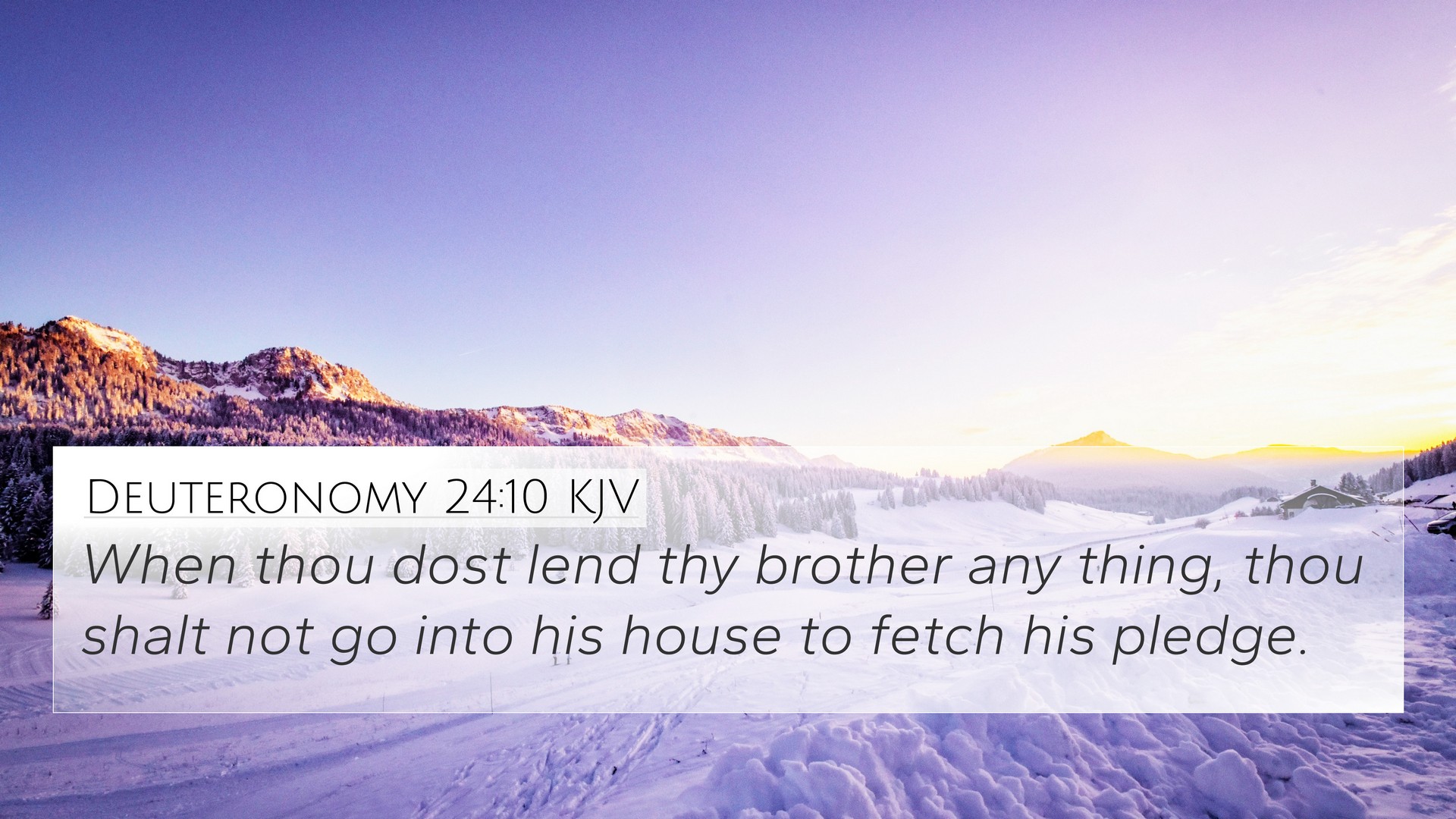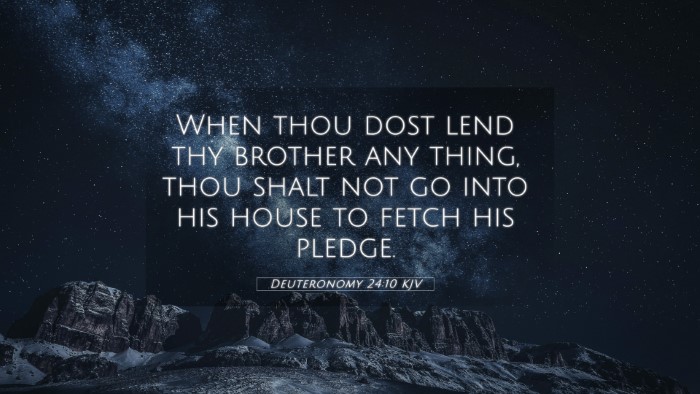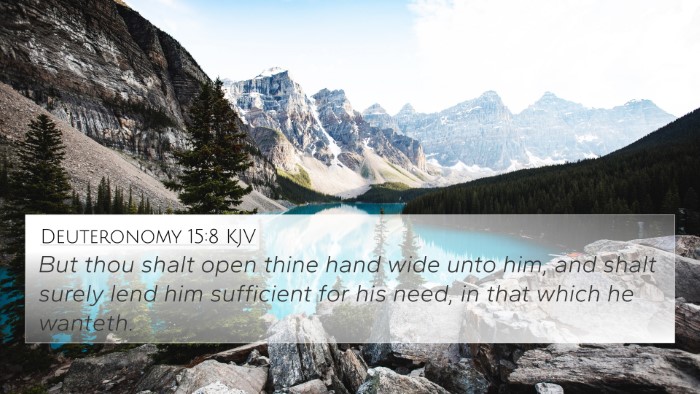Understanding Deuteronomy 24:10
Verse: "When you lend your brother anything, you shall not go into his house to get his pledge." - Deuteronomy 24:10 (NKJV)
Summary of Meaning
Deuteronomy 24:10 addresses the principles of lending and borrowing among the Israelites. The verse emphasizes respect for personal dignity and privacy while also underscoring the ethical responsibilities involved in lending practices. The implication is that, as a lender, one should not invade the personal space of the borrower by demanding collateral within their home. Instead, this aligns with a broader ethical framework that seeks to promote a sense of brotherhood and community among the people of Israel.
Commentary Insights
-
Matthew Henry:
Henry highlights the importance of consideration in transactions between brethren. He suggests that this command reflects a loving and respectful approach to financial dealings, reminding the lender to treat their neighbor's property and dignity with care. The focus is on the moral obligation to uphold fairness and compassion in lending policies.
-
Albert Barnes:
Barnes explains that this commandment serves to prevent intimidation and offers protection to those who might be vulnerable in financial circumstances. He emphasizes that requiring a pledge should be done with kindness rather than coercion, noting that the act of laying claim to a borrower's property should not become a tool of oppression.
-
Adam Clarke:
Clarke discusses the cultural context, suggesting that within ancient Israelite society, such actions are self-evident in reflecting community values. His emphasis on the social dynamics illustrates that cooperation and mutual respect are essential components of a healthy community, a principle echoed throughout biblical texts.
Bible Cross-References
This verse connects with several other scriptures, highlighting its themes of ethical treatment in lending and prioritizing relationships over material gain:
- Exodus 22:26-27: Addresses similar guidelines about taking a personal item as collateral.
- Leviticus 25:35-37: Discusses lending to the poor without interest.
- Proverbs 22:7: Illustrates that the borrower is slave to the lender, emphasizing the consequences of debt.
- Matthew 5:42: Encourages generosity in lending without expectation of return.
- Luke 6:34-35: Advocates for benevolent lending practices characterized by love.
- James 2:15-16: Warns against failing to assist those in need, reinforcing communal duty.
- 1 John 3:17: Asserts that true love involves providing for the needs of others.
Connections Between Bible Verses
Thematic connections among these verses create a dialogue about the treatment of others and the responsibilities borne by members of a community:
For instance, Exodus 22:26-27 complements Deuteronomy 24:10 by emphasizing the ethical approach in dealing with others' needs, particularly in their financial difficulties. Similarly, 1 John 3:17 expands on the themes of love and mutual support found in the Old Testament laws, suggesting an interconnectedness across scripture that reinforces care for one another.
Why Cross-Referencing Matters
Understanding the connections between these verses enriches one's comprehension of biblical principles. By examining the bible verse cross-references found throughout scripture, believers can identify thematic Bible verse connections that provide deeper insights into God’s laws and desires for human relationships.
Comparative Bible Verse Analysis
By engaging in a comparative Bible verse analysis of Deuteronomy 24:10 with related scriptures, one can observe how this ethical directive maintains continuity within the wider narrative of the Bible, reinforcing the tenets of love, respect, and community.
How to Use Bible Cross-References
Utilizing tools for Bible cross-referencing allows individuals to draw connections that frame a holistic view of scripture. A bible concordance can facilitate this by guiding readers through intricate relationships between verses.
Conclusion
In summary, Deuteronomy 24:10 serves as a foundational instruction on ethical lending among the people of God. The insights from various commentaries highlight the moral obligations of individuals in economic transactions, emphasizing dignity and respect for one another. By leveraging cross-referencing Biblical texts and exploring themes consistently found throughout scripture, believers can cultivate a richer understanding of God’s will for personal interactions and community life.




